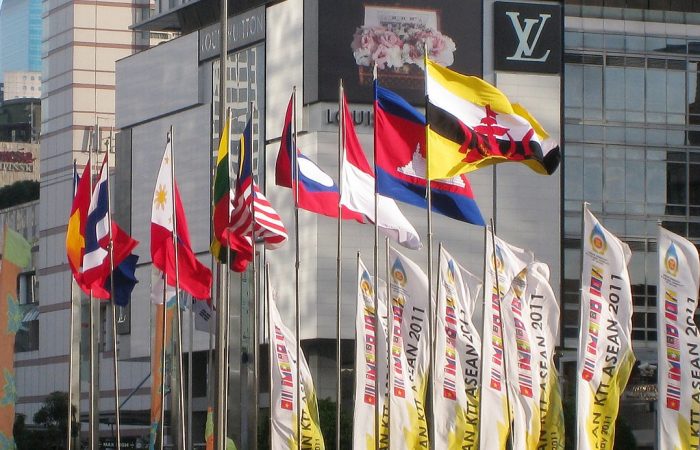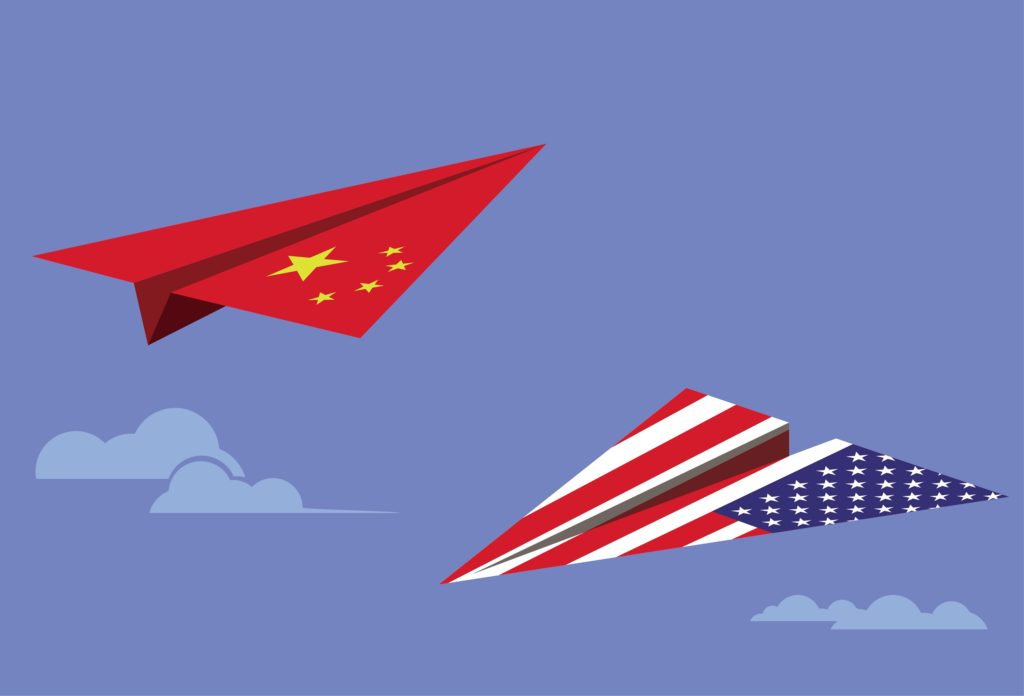Based on the Cold War experience, in the contentious relationship between the U.S. and China, the role of third-party forces is crucial. Winning over ASEAN–which has not yet chosen sides between China and the United States, maintaining the centrality and neutrality of ASEAN, and increasing China’s leadership in the region are crucial for neutralizing the United States Indo-Pacific strategy.
ASEAN’s trying to preserve its centrality and neutrality among the Sino-US fierce competition. ASEAN’s intention to preserve its centrality and independence determines that it will try hard to not choose sides between China and the United States. The strategic competition between China and the United States has promoted ASEAN’s unity and determination to “center on me”. ASEAN refuses either the United States or China intending to weaken its central role in regional security building. In August, a joint statement by all 10 ASEAN foreign ministers stated that Southeast Asian countries should remain neutral and united, dedicated to peace, and not taking sides as China-US relations deteriorated. In September, at the East Asia Summit, Indonesian Foreign Minister Retno Marsudi stated that “ASEAN, Indonesia, wants to show to all that we are ready to be a partner.”
ASEAN’s basic views on Sino-US competition can be found in its “ASEAN Indo-Pacific Outlook” document in the face of the vigorous promotion of the Indo-Pacific strategy by the United States. The document highlighted ASEAN’s independence and initiatives. ASEAN believes that “Asia-Pacific and Indian Ocean are closely connected regions, and ASEAN plays a central and strategic role.” ASEAN also shows strong preference for the status quo. ASEAN stated that it has no intention of subverting the past pattern and order, and has no purpose of building a new set of regimes. Therefore, ASEAN intends to adopt a conciliatory stand to play down the rivalry between China and the United States. This intention can be seen from the fact that ASEAN deliberately refused the name “free and open Indo-Pacific” used by the United States, Japan, and Australia, but instead the “open, transparent and inclusive” Indo-Pacific region, which means it opposes the exclusion of different regimes and values. At the 2019 Shangri-La Dialogue, Singapore’s Prime Minister Lee Hsien Loong warned the United States that the Indo-Pacific strategy should not weaken ASEAN’s arrangements or create rival groupse. Indonesian President Widodo once called for establishing an Indo-Pacific region including China, and declared no other option between ASEAN and China except for cooperation.
In addition to the leaders of ASEAN countries, the ASEAN elite groups also reluctant to choose sides between China and the United States. The general sentiment is that they neither trust the United States nor China. Singapore’s Yusuf-Isa Institute of Southeast Asia (ISEAS) conducted a poll in 2020, showing that Southeast Asian elites have significantly lowered their assessment of the United States’s influence under Trump administration. 52.2% of the respondents believe that China is the most influential country politically and strategically, and only 26.7% choose the United States. In response to how to deal with Sino-US competition, strengthening ASEAN unity and flexibility was the first option. On the other hand, only 1.5% of the respondents believed that China would become a “friendly and beneficial country”, and 85.4% were worried about China’s status. China should alert to this mindset and do more to ensure ASEAN elites China’s benign intention.
ASEAN fully aware of the collateral damage of great power rivalry. Suppose armed conflicts break out between China and the United States, Southeast Asia will high likely become the main battlefield. Countries which accommodate the United States forward presence troops won’t exclude the possibility of being targeted, just like the saying says: elephant fights and grassland suffers. In particular, the Trump administration’s disregard for its allies under the guidance of the “America First” doctrine makes ASEAN even less likely to expect the United States to invest more military resources to protect or help them.
Given these calculations, ASEAN has two main goals among the Sino-US strategic competition: one is to avoid being threatened by the confrontation between China and the United States; the other is to defend its central position. In the coming years, ASEAN may adopt following policies.
First, implement a balanced policy to dilute the concentration of Sino-US competition. Joining TPP and RCEP; simultaneously welcoming China’s “One Belt, One Road” initiative and the “Blue Dot Program” of the United States, Japan, and Australia in the introduction of foreign investment in infrastructure; while strengthening military cooperation with the United States, it will also maintain security cooperation with China.
Second, attach more significance to international judicial approaches. To neutralize the pressure of Sino- U.S. strategic competition, ASEAN would think the most possible way-out of this risky environment is to turn to international judicial approach. By this approach, ASEAN can hold back the excuses that the U.S. is using to militarizing the region while find an advantageous ground to push South China Sea claimant to resolve disputes peacefully.
Third, to play a role of a platform provider, for the sake of keeping the Sino-US security dialogue within established multilateral frameworks with the hope of “socializing” and restrain great power’s competition artfully.
ASEAN’s approaches provide spaces for establishing a regional balance of power between great powers and regional middle and small powers. Before the regional strategic situation becomes stable, we will see regional countries exploring various possibilities to find most favorable strategy to safeguard its interests. There will be opportunities for China to build a more balanced regional structure to neutralize the United States Indo-Pacific strategy.
First, to firmly support the centrality of ASEAN. Support the integration of ASEAN and prevent ASEAN as a whole from joining the United States camp strategically against China. ASEAN unity is not necessarily a bad thing, rather ASEAN unity can restrain radical policies such as Vietnam and the Philippines to a certain extent.
Second, to promote the political neutrality of ASEAN. ASEAN’s refusal to choose sides does not mean a formal neutral position. China should treat ASEAN’s neutral position with a realistic attitude. The neutrality of ASEAN can be reflected in maintaining good relations with China and the United States at the same time, not providing the United States with more military access rights, not participating in the arms race, not taking provocative military actions against China together with the U.S., rather than officially ending the established relationships with the United States.
Third, not to overreact to ASEAN’s policies and tolerate a mixed bilateral relationship. Although ASEAN and China have close geographical, economic, and cultural ties, but there is also security distrust and security deficit between both sides. They should be allowed to cooperate closely with China in regards of economic relationship, and maintain the status quo or move towards a neutral direction in terms of security.
Fourth, to coordinate internal affairs and diplomacy to improve China’s international leadership. As a world power, internal affairs have global effects. The deterioration of the United States image in the eyes of ASEAN elites is inseparable from United States internal affairs’ deterioration. Traditionally, an important aspect of neighboring countries’ centripetal force for China is their yearning for Chinese civilization. China should deepen domestic reforms from the perspective of international leadership, especially on social issues that the younger generation is concerned about, such as social security, protection of women’s rights, cultural diversity, environmental protection, etc.
Xiaoqin Shi is a Senior Research Fellow at the National Institute for South China Sea Studies




